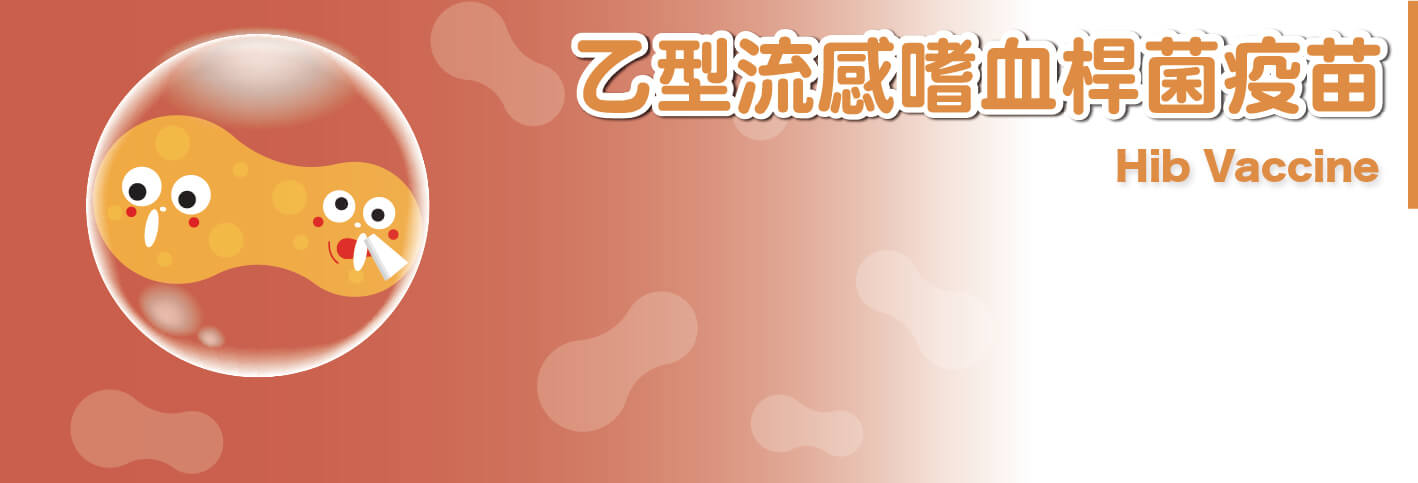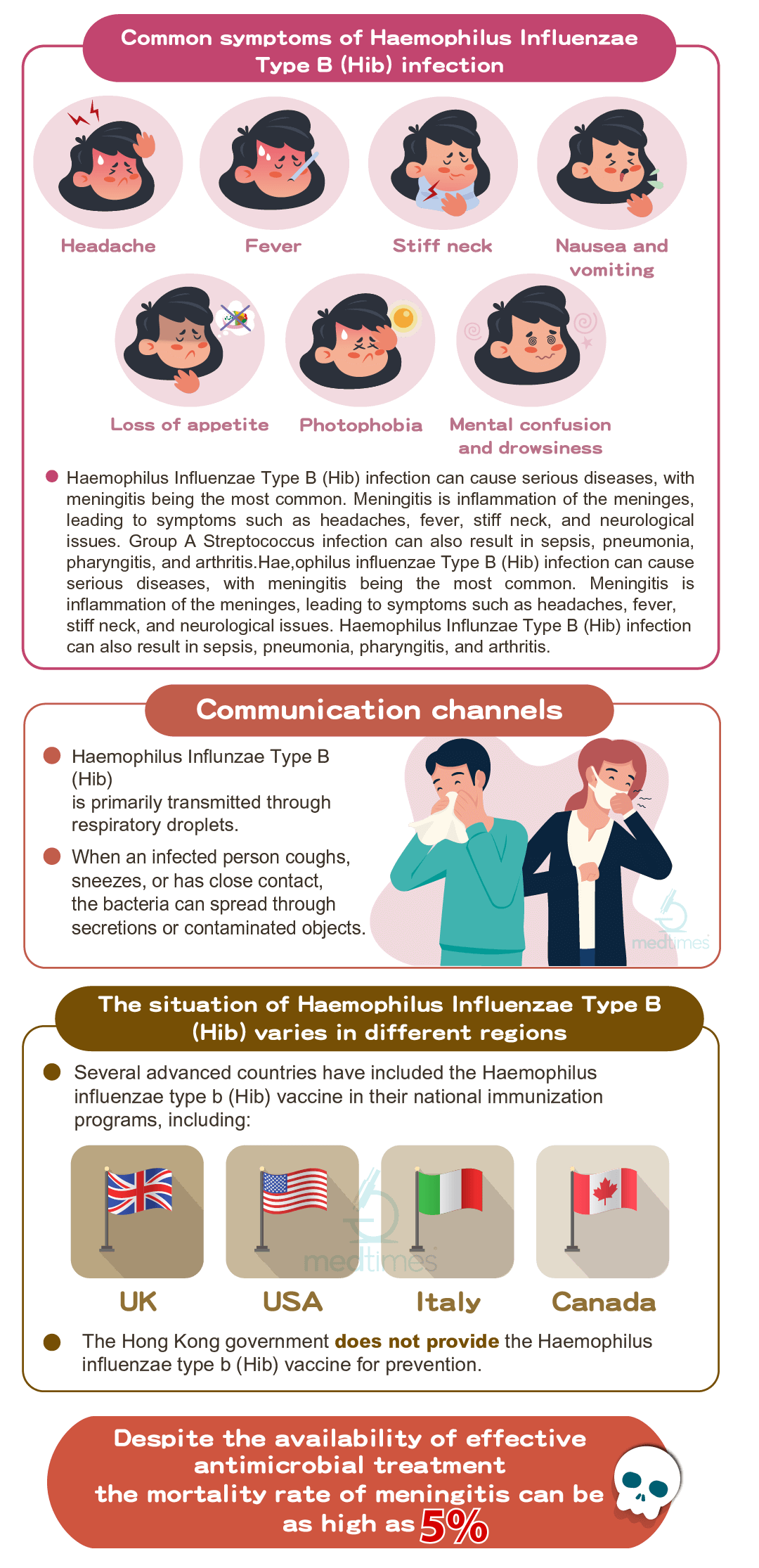
Bacteria capable of causing major invasive illnesses
Young children are affected; 90% of patients are under the age of five, while older children are at comparatively low risk of infection.
Haemophilus influenzae type b, contrary to its name, does not cause influenza.
Can be transmitted through respiratory secretions in the air.
Invasive infection can cause a range of dangerous diseases, the most prevalent of which is meningitis, often accompanied by bacterial entry into the bloodstream.
Fever, headache, stiff neck, loss of appetite, nausea, vomiting, photophobia, disorientation, and sleepiness are common symptoms.
Secondly, there is a risk of pneumonia, sepsis, otitis media, acute epiglottitis, and death.
Seek medical assistance immediately if your child's fever, strange behavior, or condition worsens, or if you have any doubts about the diagnosis.

Vaccine name |
Hib Vaccine |
|
Suitable for |
Additional prophylaxis against Haemophilus influenzae type b infection is required |
|
Effective prevention |
Haemophilus influenzae type b causes meningitis and pneumonia. |
|
Inoculation time |
1st dose:2 months |
|
Common side effects |
After immunization, you may have loss of appetite, irritation, soreness at the injection site, redness and swelling (less than 50 mm), slight fever, and exhaustion, but these symptoms will pass rapidly. | |
Not suitable for |
Hypersensitivity to any vaccination component | |
Precautions |
You can alternatively select a 5-in-1/6-in-1 vaccine (containing Hib vaccine) to reduce the number of dose needed. | |

完成測試後,有機會獲免費骨質密度檢查 (DEXA) 乙次 或 骨質密度檢查優惠券乙張
閣下資料將會用作此推廣活動聯絡用途,如因資料有誤而未能聯絡閣下,本公司一概不負上任何責任。